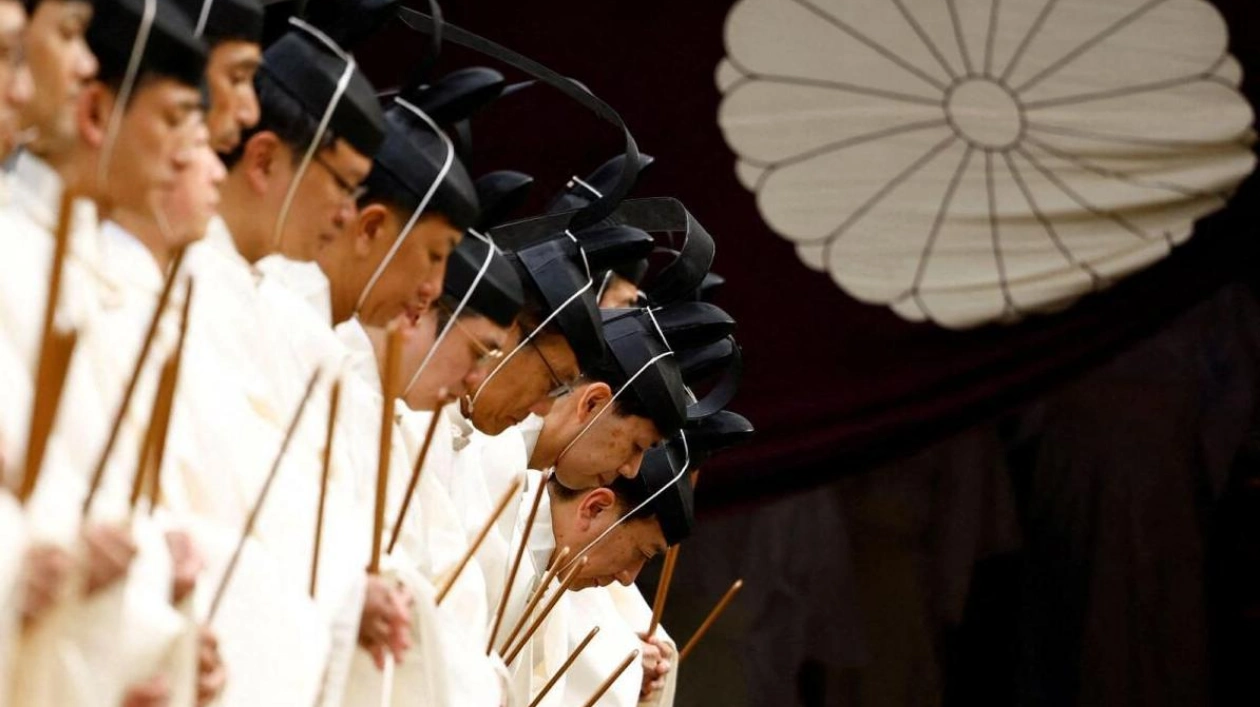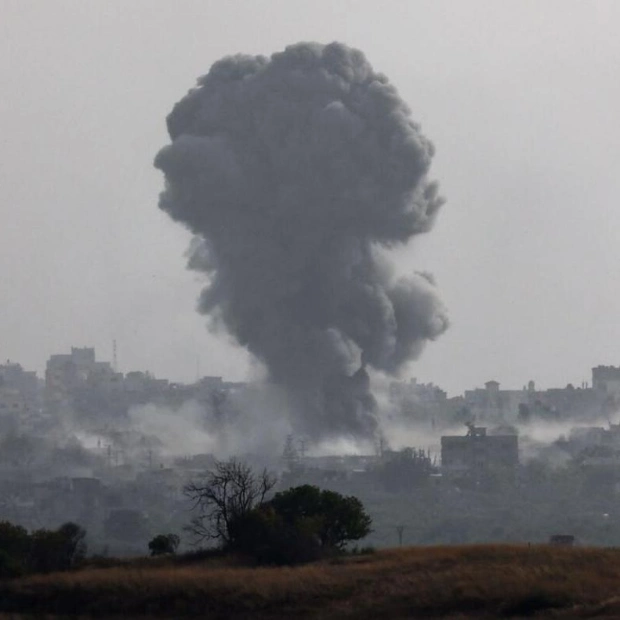Japanese Shinto priests bowed during a ritual at Yasukuni Shrine in Tokyo, Japan, on October 17, 2024, as part of an autumn festival. — Reuters
On Thursday, Japan's newly appointed Prime Minister Shigeru Ishiba sent a ritual offering to Yasukuni Shrine, which honors the country's war dead and has historically caused tension with neighboring nations, according to a spokesman for the shrine.
No Japanese prime minister has visited Yasukuni Shrine since 2013. Ishiba's predecessor, Fumio Kishida, regularly sent offerings for the shrine's biannual spring and autumn festivals.
Yasukuni Shrine in central Tokyo is dedicated to 2.5 million war dead, primarily Japanese, who perished in conflicts since the late 19th century. However, this includes senior military and political figures convicted of war crimes by an international tribunal before and during World War II.
Every year, numerous lawmakers pay their respects during the spring and autumn festivals, as well as in August for the anniversary of the emperor's announcement of Japan's surrender in 1945. However, no Japanese prime minister has visited since 2013 when Shinzo Abe's actions sparked outrage in Beijing and Seoul, and drew a rare diplomatic rebuke from the United States, a close ally.
Takamaro Fukuoka, the Minister of Health, Labour and Welfare, also sent a 'masakaki' tree offering, the shrine's spokesman told AFP.
Seoul expressed 'deep disappointment and regret' over the actions of Japanese leaders, with South Korea's foreign ministry stating on Thursday, 'We urge the leaders of the new Japanese cabinet to squarely face history and show through action humble reflection and genuine atonement for past wrongdoings.'
Beijing's foreign ministry spokeswoman Mao Ning referred to Yasukuni as 'a symbol of Japan's militaristic war of aggression' during a regular briefing. She urged Japan to 'face up to and reflect on its history of aggression (and) to be cautious in words and deeds regarding historical issues such as Yasukuni Shrine.' Mao added that this would help Japan 'gain the trust of Asian neighbors and the international community through concrete actions.'






